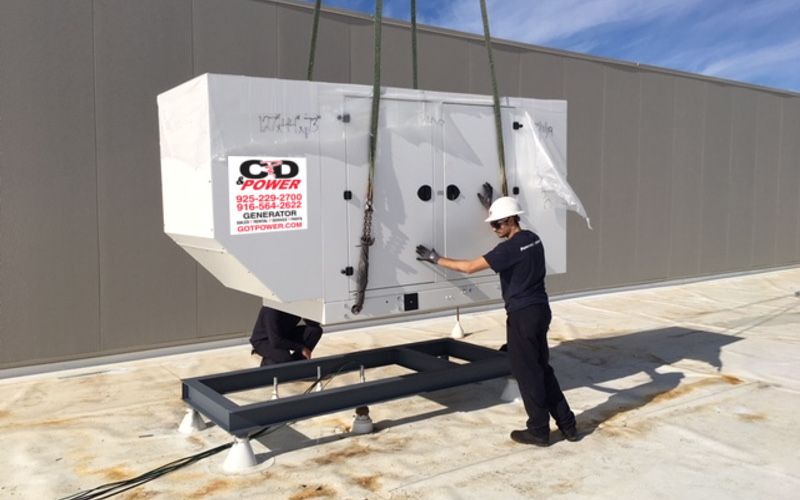
Power outages can disrupt your daily routine or business operations, causing inconvenience and potential financial loss. Whether you’re a homeowner looking to keep the lights on during storms or a business owner seeking uninterrupted service, investing in a reliable generator is a smart choice. But installing a generator requires more than just buying the right model—it demands professional expertise to ensure safety and efficiency.
This comprehensive guide walks you through everything you need to know about generator installation Dearborn MI, the role of a skilled electrician, and how electrical service upgrades and network installation can factor into your project.
Why Consider Generator Installation?
What Are the Benefits of Having a Generator?
• Uninterrupted Power: Keep essential appliances, lighting, and security systems running.
• Business Continuity: Avoid downtime and lost revenue in commercial settings.
• Safety: Maintain heating, medical equipment, and emergency communication.
• Peace of Mind: Be prepared for unexpected outages due to storms or grid failures.
What Does Professional Generator Installation Involve?
Can You Install a Generator Yourself?
While portable generators can be plugged in manually, installing a whole-house or commercial standby generator involves complex electrical work. This is where hiring a licensed electrician becomes crucial.
What Are the Key Steps in Generator Installation?
• Assessing Power Needs: An electrician evaluates your current load and future requirements.
• Electrical Service Upgrades: Your existing electrical panel may need an upgrade to handle the generator’s load safely.
• Permitting and Inspection: Professional installation includes obtaining permits and scheduling inspections to meet local codes.
• Installation of Transfer Switch: This device ensures seamless switching between grid power and generator power without backfeeding.
• Integration with Network Installation: For businesses, maintaining network uptime during outages may require special cabling or UPS systems alongside the generator.
How to Choose the Right Generator for Your Home or Business
What Size Generator Do You Need?
• Calculate the wattage of essential appliances and systems you want to power.
• Discuss with your electrician the possibility of electrical service upgrades to support your generator’s capacity.
• Consider future growth or additional equipment.
Types of Generators:
• Portable Generators: Ideal for short-term power needs but limited in capacity.
• Standby Generators: Automatically turn on during power loss and can power your entire home or business.
Why Hire a Licensed Electrician for Generator Installation?
What Makes an Electrician Essential?
• Expertise in wiring and safety protocols
• Experience with electrical service upgrades and integration of new equipment
• Handling of permits, inspections, and compliance with local regulations
• Coordination with your network installation team to ensure IT systems stay operational
Tips for Selecting the Right Electrician
• Verify licensing and insurance
• Check past experience with generator installations
• Request detailed quotes and timelines
• Look for customer reviews or references
Common Challenges in Generator Installation and How Professionals Overcome Them
• Space Constraints: Electricians plan installation sites for optimal ventilation and access.
• Fuel Source: Options include natural gas, propane, or diesel—each with pros and cons.
• Load Management: Professionals ensure your electrical panel and circuits handle load switching safely.
• Integration with Security and Network Systems: Avoid interruptions to alarm systems and communications.
How Do Electrical Service Upgrades Tie Into Generator Installation?
Upgrading your electrical service may be necessary to:
• Support increased power loads
• Install a transfer switch
• Comply with modern electrical codes
This upgrade often coincides with generator installation, making it a one-stop project managed by your electrician.
Does Generator Installation Affect Network Installation?
For businesses, power outages can disrupt IT infrastructure. Coordinating your generator installation with network installation specialists ensures:
• Critical servers and routers remain powered
• Network hardware is protected with uninterrupted power supplies (UPS)
• Smooth failover to backup power with minimal downtime
Post-Installation: What Should You Expect?
• Thorough testing of the generator and electrical system
• Training on operating and maintaining your new generator
• Scheduled maintenance plans to ensure longevity and performance
• Clear documentation and warranty details
Conclusion
Investing in a generator is a smart way to safeguard your home or business against power outages. However, successful generator installation requires much more than buying equipment—it calls for the expertise of a licensed electrician who can assess your electrical needs, recommend electrical service upgrades, and coordinate with specialists for network installation if necessary.
By choosing the right professionals, you ensure that your generator is safely installed, fully compliant with regulations, and integrated seamlessly into your existing electrical and IT systems. This not only provides reliable backup power but also peace of mind knowing your investment will serve you well for years to come.
If you’re ready to take the next step, consult a trusted electrician to discuss your specific needs and start planning your generator installation today. Reliable power is within reach! solar panel installation Dearborn MI
